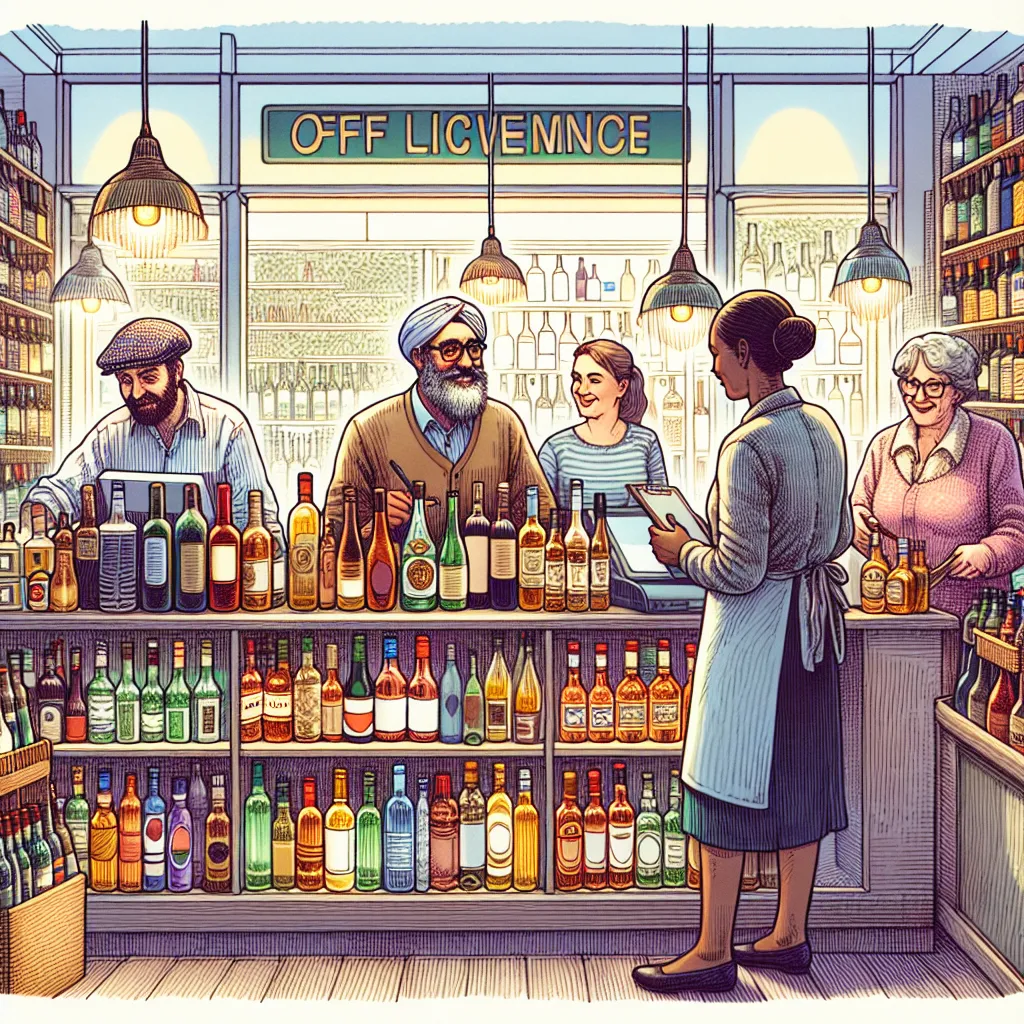There’s a unique opportunity in the UK market that many entrepreneurs might overlook: owning an off licence. This retail business deals with the sale of alcoholic and non-alcoholic drinks for consumption off-premises. But why is this niche so promising? The answer lies in the symbiotic relationship between community demand and niche marketing. Let’s dive into the nuances of acquiring and operating an off licence in the UK.

Understanding the Off Licence Market
What Is an Off Licence?
An off licence in the UK is a shop licensed to sell alcoholic beverages for consumption away from the premises. These businesses range from small, family-run stores to larger, more structured establishments offering a wide variety of drinks.
The Appeal of Off Licences
Why do off licences hold such appeal? For starters, they often provide a diverse selection of products not found in larger supermarkets. This includes craft beers, premium wines, and even exclusive imports. Furthermore, off licences can offer a personal touch—think of them as the friendly neighborhood corner shops that know your name and your favorite drink.
Types of Alcohol Licences
Navigating the alcohol beverage laws is crucial for prospective buyers. Here’s a breakdown of the common types of licences:
- Class A Licences: For retail sale of intoxicating liquor for off-premises consumption.
- Class B Licences: Typically for restaurants and bars, allowing consumption on-premises.
- Temporary Licences: For special events, allowing temporary sale of alcohol.
Each licence type has its own set of requirements and costs, which are determined by local municipalities.
Steps to Acquiring an Off Licence
1. Research and Market Analysis
Before diving in, conduct thorough market research. Assess the competition in the area, understand customer demographics, and identify gaps in the market that your off licence could fill.
2. Licensing Requirements
Licensing is a critical step. You must apply for the appropriate alcohol beverage license, which involves qualifying criteria such as age, residency, and completion of a responsible beverage server training course. Municipalities handle these applications, and the process can vary across the UK.
3. Choosing the Right Location
The location of your off licence can make or break your business. Look for areas with high foot traffic and minimal direct competition. Accessibility and visibility are key components to consider.
Running a Successful Off Licence
Building a Strong Customer Base
Engagement is essential. Many successful off licences host tasting events or run loyalty programs. These initiatives not only attract new customers but also keep regulars coming back.
Inventory Management
Keeping a diverse and well-managed stock is crucial. Use an EPOS system to track sales and manage inventory effectively. This helps in maintaining a fresh and appealing selection of products.
Challenges and Opportunities
Challenges
- Regulatory Compliance: Staying compliant with local laws can be daunting. Regularly review local regulations to ensure adherence.
- Competition: Competing against larger supermarkets requires strategic pricing and unique product offerings.
Opportunities
- Niche Markets: Specializing in craft beers or organic wines can set your off licence apart.
- Community Engagement: Hosting community events can enhance brand loyalty and increase foot traffic.
Table: License Fees and Types
| License Type | Description | Fee Range |
|---|---|---|
| Class A | Retail sale for off-premises | £400 – £1,200 |
| Class B | On-premises consumption | £900 – £3,000 |
| Temporary | Special events, limited duration | £50 – £500 |
Conclusion
Embarking on the journey of owning an off licence in the UK is not just about selling drinks; it’s about becoming a part of the community. By understanding the market, adhering to regulations, and engaging with customers, you can carve out a successful niche in this vibrant industry. With the assistance of tools like AnySqft’s AI-driven platform, navigating property acquisition and management becomes a seamless process, allowing you to focus on what matters most—serving your community.
Remember, every off licence is more than just a shop; it’s a hub of local culture and camaraderie.
Off Licence for Sale
If you’re seeking an off licence for sale, consider these key points:
Why Invest in an Off Licence?
- Steady Demand: High foot traffic and community engagement.
- Diverse Product Range: Alcoholic and non-alcoholic beverages, snacks, and groceries.
- Flexibility: Can operate as a convenience store alongside liquor sales.
Key Considerations
- Location: Look for residential or busy commercial areas.
- Licensing: Ensure compliance with local regulations.
- Market Research: Understand competitor offerings and customer preferences.
For a seamless experience in finding or selling an off licence, visit AnySqft today!